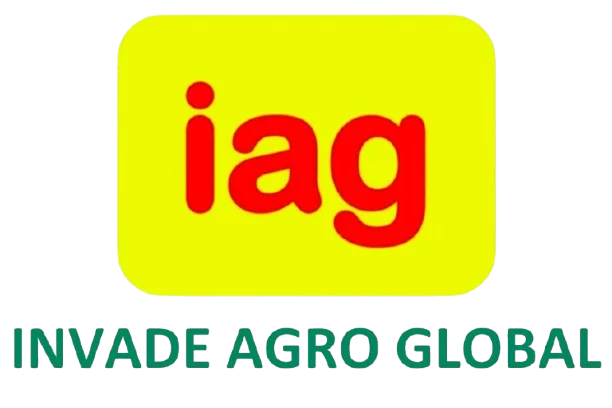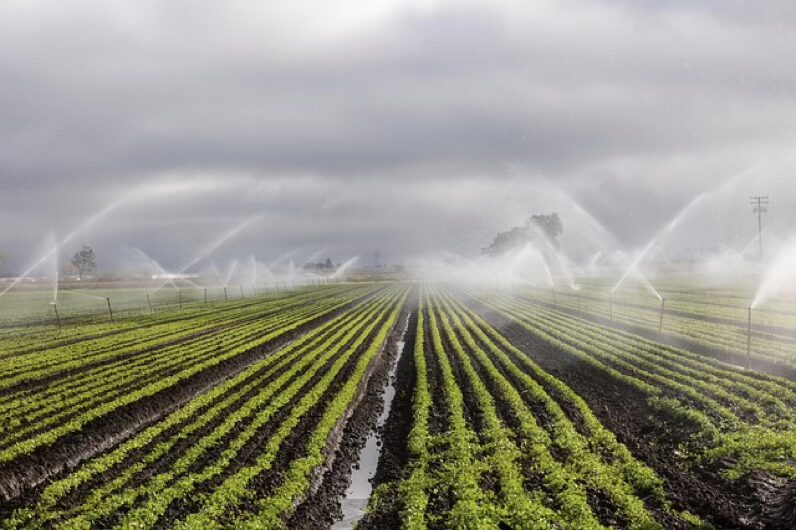
How Precision Irrigation in Farming Reduces Water Stress
Have you ever imagined that the greatest challenge in agriculture is not merely sowing seeds or planting crops, but irrigating them at the right moment? Water scarcity has become the greatest challenge for all farmers in the world today. Sometimes it fails to rain on time, and sometimes the groundwater level comes down so much that irrigation is not easy. The consequence is that the crops wither away, and the hard work gets wasted. This is where precision irrigation in farming helps.
Irrigation does not just refer to watering down the field, but also supplying water to the correct location and in the correct quantity based on the plant’s requirements. Smart irrigation systems help in this work, which makes farming even more intelligent and effective.
In this blog, we will learn how this new technology not only saves water but also improves both the farmer’s hard work and yield. So let’s start this journey and understand how Precision irrigation in farming is reducing water scarcity and making farming easier.
What is water stress in farming?
The farmer’s major concern is whether the crop receives timely and appropriate water or not. At times it rains heavily, and sometimes it does not rain at all. In most regions, groundwater has decreased so much that even normal agricultural irrigation systems are not able to provide enough water for the field. Under such circumstances, the crops turn out incomplete, and the hard work is directly affected.
The latest statistics show how serious the problem is. According to a new report by the World Resources Institute (WRI), about a quarter (25%) of the world’s crops are grown in areas where the availability of water is very weak, uncertain, or both. That is, one out of every four farms is always struggling with water problems.
When plants do not get water according to their needs, they gradually start weakening. Their growth stops, the yield decreases, and the quality of grains or fruits also starts falling. This is the real meaning of water stress in agriculture.
For this reason, farmers are now looking for such techniques that can make proper use of every drop of water. This thought brings us to the next important discussion, which is precision irrigation in farming.
What is Precision Irrigation in Farming?
Most people think that irrigation is when a great deal of water is poured in the field and the better it is absorbed by the plants. But the reality is that there is a lot of wastage of water in this, and many times the plant does not get as much moisture as it needs.
This is where the story of Precision irrigation in farming begins. This is a technique in which water is delivered at the “right time, right place, and right quantity”. The purpose of this technique is not to submerge the whole field but instead to make sure that the roots of each plant can get as much water as it requires.
How Precision Irrigation Reduces Water Stress in Agriculture?
When proper water is not provided to the plants on time, they begin drying up, while, on the contrary, excess water leads to root rot. This situation is renowned as water stress in farming, and it presents the biggest dilemma to the farmer.
Smart irrigation systems play a big role in this work. Things like sensors, soil moisture measuring devices, weather data, and automatic control together decide; when and how much water the plant needs. This has two benefits. First, water is saved, and second, both the health and yield of the crop improve.
The biggest thing is that this technology can save up to 40% water as compared to traditional methods. That is, farmers can get a good yield even with less water. Not only this, but by getting equal moisture to the plants, their health remains good, and the quality of the crop also improves. This is the reason why today’s precision irrigation system in agriculture is being considered an important part of future farming.
Main Types of Precision Irrigation
In farming, every land and every crop has different needs. Some plants need more moisture, and some need very little. This is the reason why many methods of precision irrigation in farming have been developed. Let us understand them in detail.
Drip Irrigation
Drip irrigation is found to be the most efficient method. With this, water is supplied to the plant roots directly through miniature pipes and nozzles. This guarantees a constant supply of water and no waste of water. Reports show that drip irrigation is 60 percent more efficient than traditional methods, and in some circumstances, up to 90% water saving is possible.
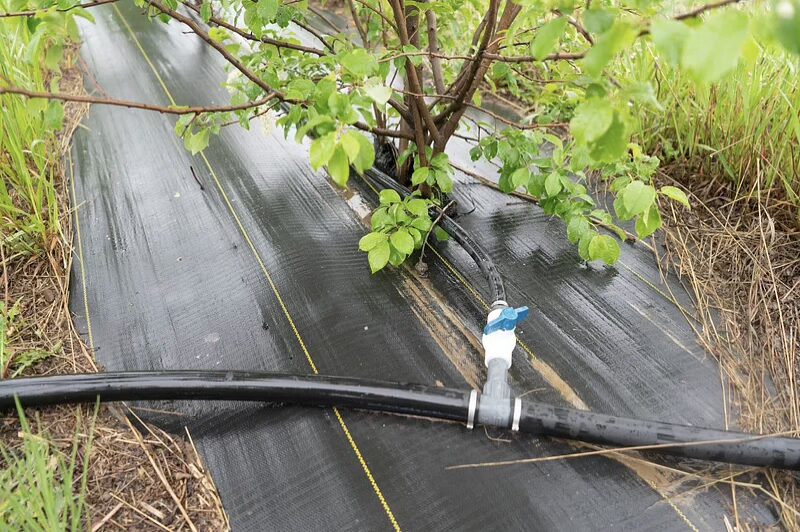
Micro-Sprinkler Irrigation
In this method, water falls in the form of droplets all around like light rain. This maintains uniform moisture on the soil surface. This method is especially useful for delicate plants, nurseries, and gardening.
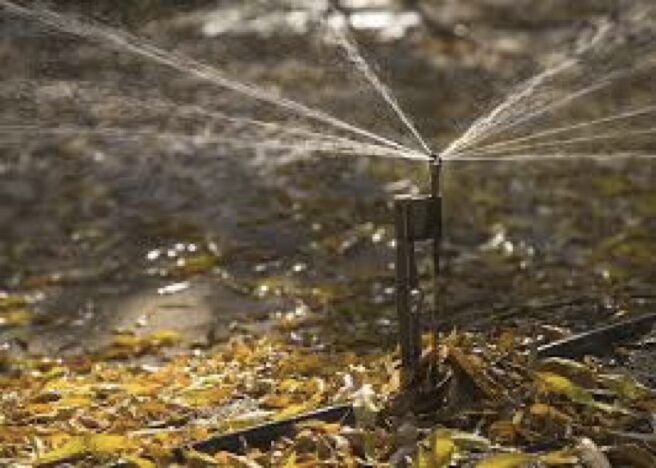
Sprinkler Irrigation
Sprinkler irrigation gives the experience of rain. In this, water spreads in the air like spray, and the entire field gets equal moisture. It is used in crops like wheat, maize, and pulses.
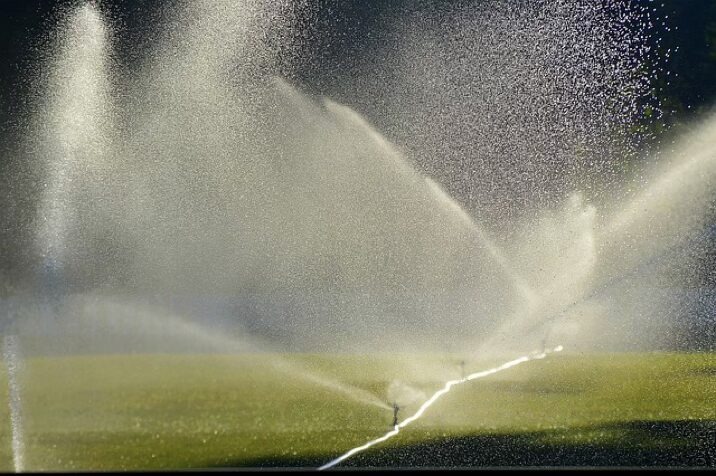
Subsurface Drip Irrigation
In this method, the pipeline is laid inside the ground, and water reaches the roots of the plants directly. Due to this, the loss of water on the surface is almost negligible. Another big advantage of this is that seeds grow less because less moisture reaches the surface. According to research, with proper management, sub-surface drip not only saves water but also increases both soil health and yield.
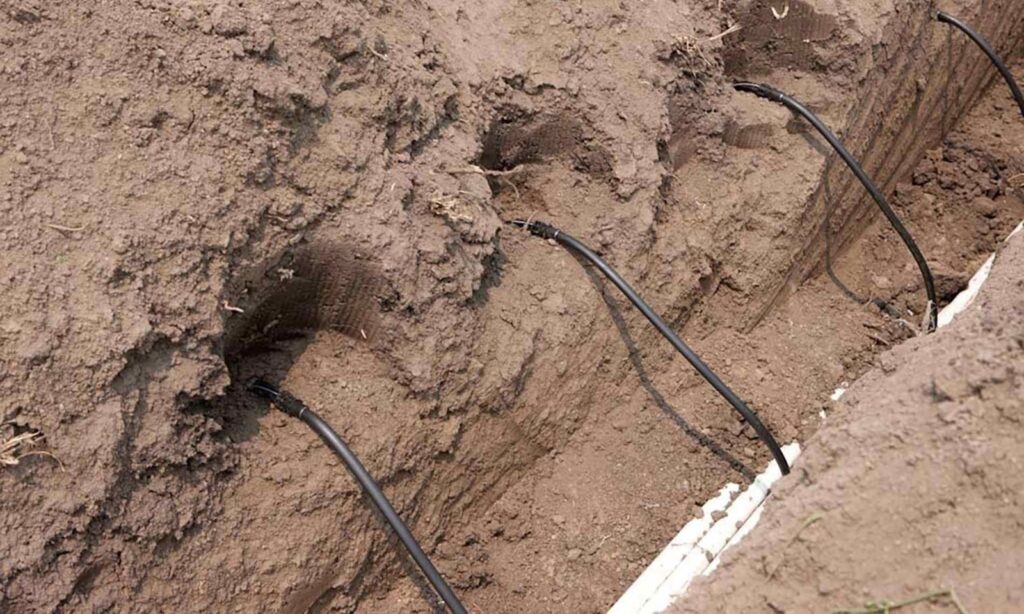
Sensor-based Smart Irrigation
This is the most modern method. In this, information about the soil, moisture, temperature, and weather of the field is continuously taken from the sensor. The system automatically decides when and how much water to give. If there is already moisture in the soil or rain is about to come, then irrigation automatically reduces. This saves the farmer’s time, hard work, and water, and the crop also gets balanced moisture.
Each type has its own specialty. Some methods are good for gardening, while others are more useful for grain farming. Farmers can choose the right option from these according to their crop, soil, and available water.
Beyond Saving Water: Other Benefits of Precision Irrigation
Most people believe that precision irrigation in farming only means saving water. But in reality, this technology gives farmers many other benefits.
- The first benefit is the health of the soil. When excess water is not poured into the field, the fertility of the soil remains for a long time. Plants can absorb nutrients in a better way, and the yield becomes stable.
- The second advantage is proper utilization of manure and fertilizers. As water directly reaches the roots, the dissolved nutrients in it are also completely accessible to the plant. This saves fertilizer from wastage and enhances crop quality.
- The third important aspect is energy and cost savings. Pumps and motors run less, and diesel and electricity consumption decrease. Small farmers also feel the direct benefit of this because the cost of irrigation is reduced.
- Apart from this, this system saves both time and labor for the farmers. There is no worry of watering repeatedly, like in traditional methods.
- Finally, its impact on the environment is also big. Low water consumption lessens the pressure on groundwater, and fertilizers do not run off and pollute rivers and ponds.
This means that smart irrigation systems not only save water, but also show the way to make farming sustainable and economical.
Challenges & Limitations of Precision Irrigation
Precision irrigation in farming gives many benefits, but there are some difficulties in adopting it.
- High initial cost: A lot of investment is required to install drip or smart irrigation systems. Small farmers are often unable to afford such expenses.
- Shortage of technical expertise: One needs to be trained in order to run devices such as sensors and control units. Because of the shortage of appropriate knowledge, the farmers are unable to reap maximum benefits.
- Maintenance issue: Drip lines and pipes need to be cleaned periodically. Occasionally, in case of a block or malfunction, it is not simple to repair.
- Availability of resources: There are places where the supply of water and electricity is not consistent. Under such circumstances, this system fails to function effectively.
- Shortage of government and financial support: Schemes and subsidies exist, but their impact is not felt by all farmers. It is also difficult to obtain a loan.
- Not effective everywhere: Its effect is different in different soils and crops. In some places, it is very successful; in some places, it is limited.
It is clear that smart irrigation systems are useful, but proper training, resources, and support are required to adopt them.
Future farming and the role of Precision Irrigation
Future farming will now depend more on wisdom and technology than hard work. Let’s see what role precision irrigation will play in farming:
- Dealing with water scarcity: Amidst changing weather and decreasing water sources, this technology ensures the right use of every drop of water.
- Smart modern system: Farmers in the future will make use of sensors, satellite information, and mobile applications to understand the state of the field in real time and irrigate.
- Increased yield and reduced cost: Studies demonstrate that precision irrigation raises yield and lowers the irrigation expenses.
- Component of climate-smart agriculture: This implies that intelligent irrigation systems not only conserve water but also lead the way in making agriculture sustainable and cost-effective.
- Government support and schemes: In the future, this facility can reach more farmers through subsidies and training programs.
- Reach in every village: When the technology becomes easy and affordable, then even small farmers will be able to change the future of farming by adopting it.
It is clear that the future of farming now depends on managing every drop of water, and smart irrigation systems are going to play the biggest role in this.
Overall…
The true beauty of farming is seen only when the fruits of hard work are fully reaped. But this journey is not easy amidst water shortage and changing weather. In such times, precision irrigation in farming gives a new direction to farmers. This technology gives each plant as much water as it needs, which improves the yield and also reduces the cost.
Today, farming not only needs to save water, but also needs to be taken forward wisely. This is what smart irrigation systems are doing by increasing the strength of the field while lightening the burden of the farmer.
If you also want to bring change to your land, then why wait now?
Invade Agro Global is working with such modern and sustainable technology for farmers. Come, let us work together to use every drop of water properly and make farming safe for tomorrow.
